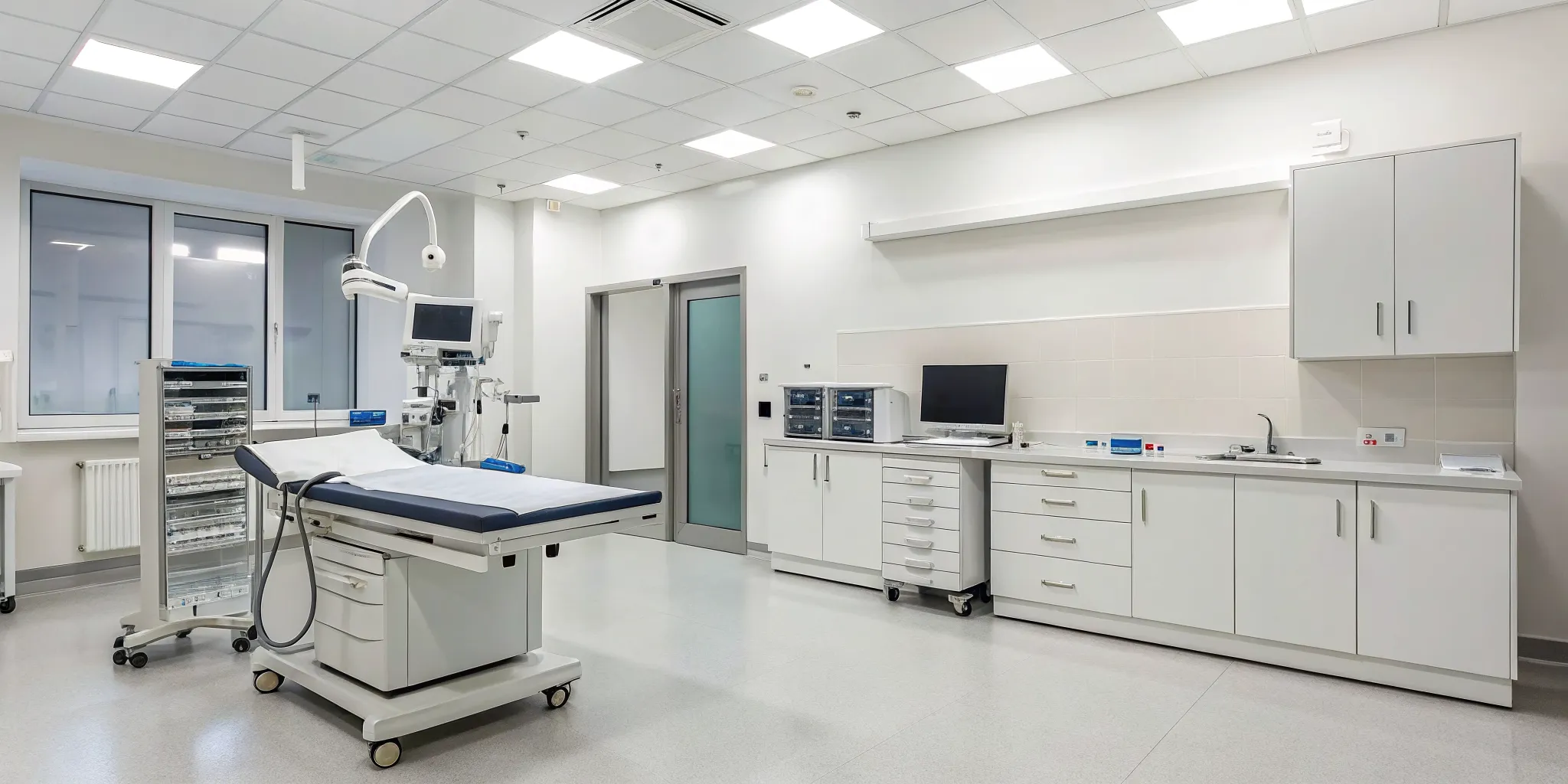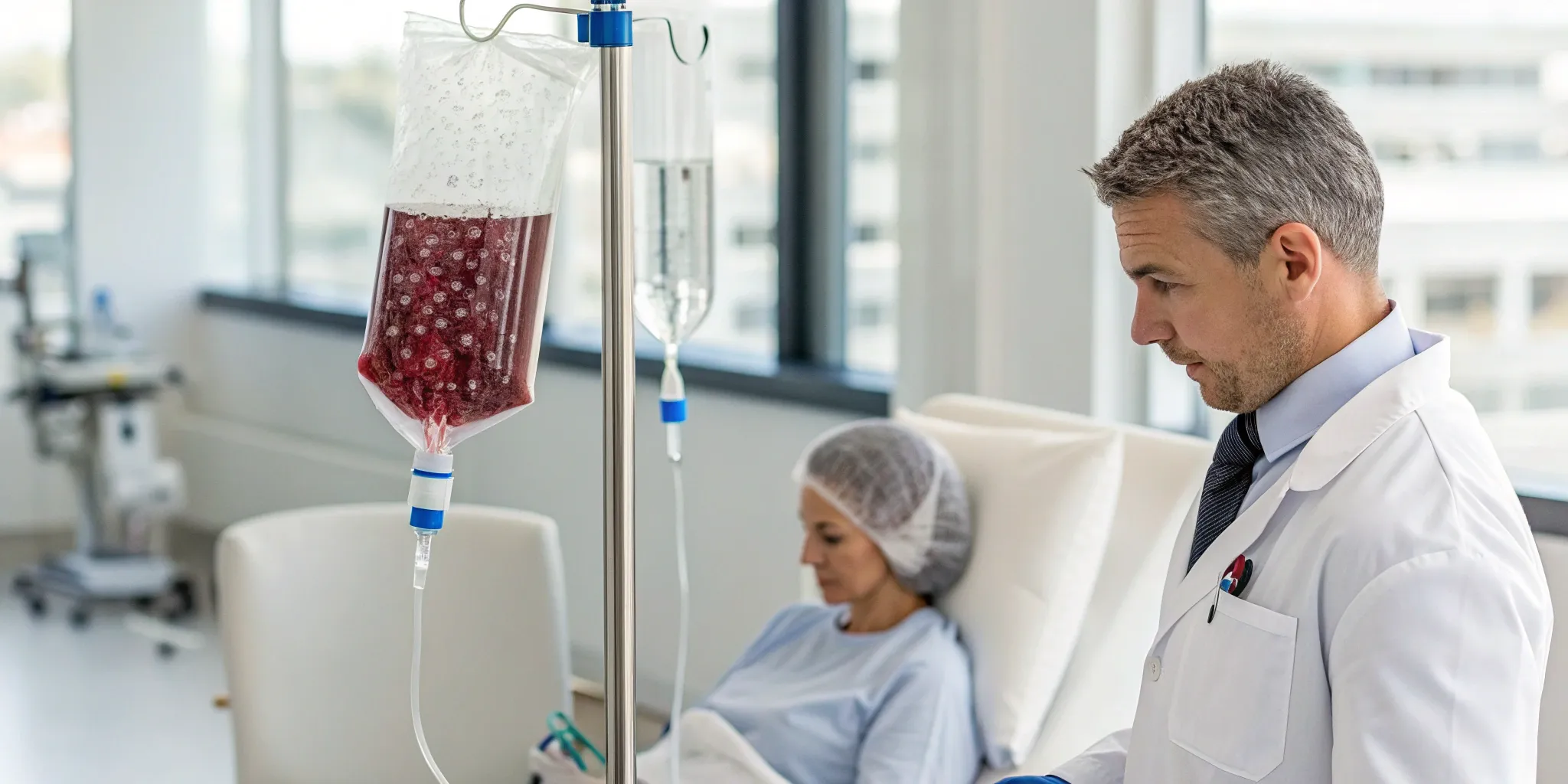Let’s be honest: when a new law changes how regenerative medicine is practiced, it’s not always clear what it really means for patients. Florida’s recently signed Stem Cell Law (Senate Bill 1768) is being described as a groundbreaking step for medical innovation — but also as a bold challenge to federal regulations. For anyone considering stem cell therapy in Florida, understanding this new legislation is crucial.
At Miami Stem Cell, we believe patients deserve clarity, not confusion. That’s why our CEO, Greice Murphy, recently spoke with the South Florida Business Journal to help explain how this law impacts patient care, clinic safety, and access to advanced regenerative treatments. Her insights highlight both the promise and responsibility that come with this new chapter in healthcare.
Key Takeaways
- Florida is pioneering access to regenerative medicine. The new law allows qualified physicians to provide certain stem cell treatments within a regulated, ethical framework.
- Patients now have U.S.-based alternatives. Instead of traveling abroad, individuals can access joint regeneration and pain management therapies under licensed care in Florida.
- Miami Stem Cell is helping shape this new standard. CEO Greice Murphy is among the state’s leading voices in ensuring that this opportunity benefits patients safely and transparently.
What Florida’s Stem Cell Law Actually Does
Signed in July by Governor Ron DeSantis, Senate Bill 1768 gives licensed doctors the right to perform specific regenerative medicine procedures that have not yet received FDA approval — but only under controlled, professional conditions. It’s a major shift in how innovative therapies can be offered within the U.S.
Under this new framework, treatments must:
- Be performed by physicians within their established scope of practice
- Use cells sourced from FDA-registered and accredited Florida tissue banks
- Include written informed consent clearly stating risks and non-FDA approval status
- Exclude the use of embryonic stem cells, focusing instead on ethical sources like umbilical cord and placental tissue
Essentially, Florida has created a system that expands access to advanced care while keeping it safely within medical oversight. It strikes a balance between innovation and patient protection — something that both patients and providers have long been seeking.
Greice Murphy’s Take: “A Defining Moment for Regenerative Care”
During her interview, Greice Murphy shared her excitement about what this law represents, not only for Florida but for patients across the U.S.
“This is a defining moment,” she said. “We’ve already seen a rise in patient interest. People are realizing they no longer have to fly to Panama or Mexico to receive high-quality stem cell care — they can access it right here, safely and ethically, in Florida.”
As the CEO of Miami Stem Cell, Murphy leads a clinic that specializes in pain management, arthritis relief, and joint regeneration therapy for orthopedic injuries. Her approach centers on transparency, evidence-based practices, and individualized patient care. The clinic’s team of medical experts works with each patient to design treatment protocols that support long-term healing, not just temporary relief.
According to Murphy, approximately 30% of their patients come to Miami Stem Cell after a previous surgery — often to accelerate recovery or to treat lingering pain. “Patients are searching for real solutions that don’t involve another invasive procedure,” she explained. “This law helps them find those options safely within the U.S.”
Florida: The New Frontier for Medical Tourism
Every year, millions of Americans travel abroad for medical treatments — many for stem cell therapies for joint pain that are unavailable domestically. But with this new legislation, that’s beginning to change. Florida’s clear regulatory pathway is positioning it as the next big hub for medical tourism within the United States.
For patients, that means:
- Eliminating the risks of overseas clinics with questionable sourcing
- Receiving treatment under licensed, U.S.-based medical professionals
- Reducing costs related to travel, lodging, and post-procedure care abroad
- Gaining peace of mind through FDA-registered supply chains and ethical oversight
“Why go abroad when you can receive the same therapy here — with trusted doctors and FDA oversight?” asked Dr. Joshua Hare, a University of Miami expert who contributed to the conversation. The sentiment echoes what many in the field believe: Florida’s model may soon be replicated by other states.
The Industry Impact: A Boost for Local Innovation
This law doesn’t just benefit patients — it also creates opportunities for local biotechnology firms and medical professionals. By keeping research and application within state borders, Florida is setting the stage for a new era of clinical collaboration, education, and discovery.
Dr. George Shapiro, Chief Medical Officer at Zeo Scientifix, described it best: “This law could make Florida the Silicon Valley of medical innovation.”
For companies like Miami Stem Cell, this opens doors for partnerships with tissue banks, research institutes, and universities focused on regenerative science. It also helps standardize procedures and ensure clinics are following best practices, fostering long-term trust between providers and patients.
Balancing Innovation with Ethical Responsibility
While the potential is enormous, both Murphy and her peers acknowledge the importance of maintaining ethical boundaries. Without proper oversight, the field could risk attracting opportunistic providers. Thankfully, the law’s requirements — including accreditation and consent — help filter out bad actors.
Murphy is adamant that integrity comes first:
“We don’t just want to lead in innovation; we want to lead in ethics. Every patient deserves honesty, safety, and science-based treatment.”
She also emphasizes that while the FDA approval process is lengthy, it’s not the sole indicator of treatment legitimacy. “Approval is bureaucratic,” she explains, “but evidence is scientific. Our goal is to bridge both — to advance healing while following every possible safeguard.”
What Patients Should Know Before Starting Therapy
If you’re considering stem cell therapy under Florida’s new law, it’s important to understand both the opportunities and limitations. Here’s what to keep in mind before scheduling your first consultation:
- Treatments are not one-size-fits-all. Each plan is customized based on your medical history, pain level, and condition severity.
- Insurance doesn’t cover it (yet). These therapies are considered experimental, but many clinics offer flexible payment and financing options.
- Results vary by individual. Regenerative healing takes time — improvements often appear over weeks or months as cells repair tissue and reduce inflammation.
- Choose a clinic that follows FDA-compliant standards. This ensures your therapy uses ethically sourced, high-quality stem cells that align with current U.S. regulations.
When choosing a provider, look for transparency, credentials, and a proven record of success. You can review the experience of the Miami Stem Cell team on the About Us page or read authentic patient testimonials for insight into real results.
How Miami Stem Cell Ensures Patient Safety
At Miami Stem Cell, safety protocols are central to every step of treatment. The clinic exclusively uses umbilical cord-derived mesenchymal stem cells (MSCs) from healthy, full-term births. These allogeneic cells are:
- Ethically sourced and fully screened for infectious diseases
- Processed in FDA-registered facilities
- Handled under sterile, controlled environments
- Designed for maximum potency and patient compatibility
Because these cells are not harvested from the patient’s own body, there’s no need for invasive extraction procedures — minimizing discomfort and risk. This modern approach reflects Miami Stem Cell’s commitment to ethical, evidence-driven medicine that prioritizes long-term joint regeneration and mobility.
What This Means for Florida’s Future
Florida’s stem cell law has already sparked national attention. By creating a state-level structure for responsible innovation, it challenges other states to reconsider how they regulate emerging therapies. The Sunshine State may soon become the blueprint for balancing progress with protection.
For clinics like Miami Stem Cell, this is a chance to continue leading the way — offering world-class care, expanding patient access, and maintaining uncompromising ethical standards. “This is not about shortcuts,” Murphy said. “It’s about creating a smarter, safer pathway for healing.”
Related Articles
Frequently Asked Questions
Is this law safe for patients?
Yes. Physicians must comply with strict sourcing and consent rules. Only FDA-registered tissue facilities and accredited sources can be used for stem cells. Miami Stem Cell strictly adheres to these requirements.
What conditions qualify under the new law?
The law currently permits therapies for orthopedic injuries, chronic pain, and wound care — all within a doctor’s licensed specialty. Learn more about stem cell therapy for arthritis and related conditions.
Can stem cell therapy replace surgery?
For many patients, it can delay or even prevent surgery by promoting natural tissue repair. However, results depend on each individual’s condition and goals. Read about our joint regeneration therapies.
Are embryonic stem cells used?
No. Florida law explicitly prohibits embryonic stem cell use. Only adult and perinatal sources, such as umbilical cord and placental tissue, are allowed — aligning with Miami Stem Cell’s ethical standards.
How can I find out if I qualify?
The best way is to schedule a consultation. At Miami Stem Cell, we’ll evaluate your case, explain your options, and recommend the best course of action for your needs.






